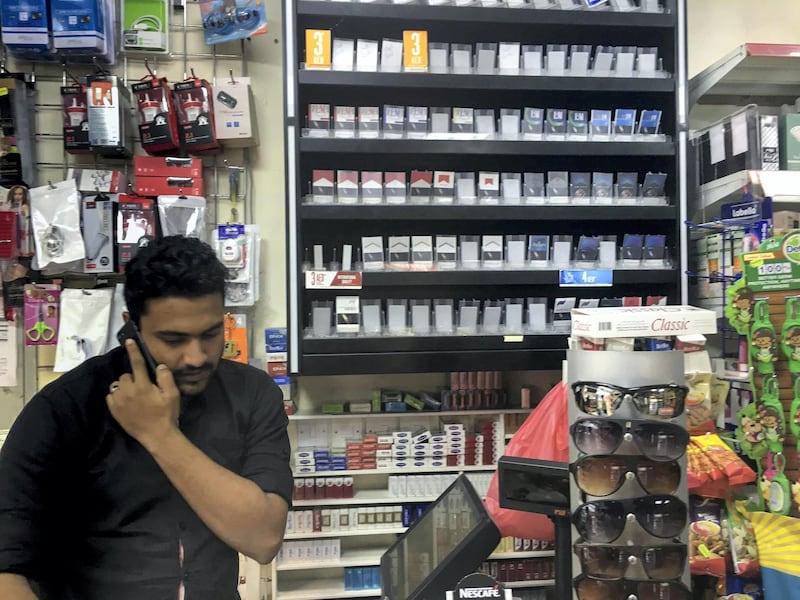Shopkeepers have been hit with fines for using the new tax on energy drinks and cigarettes as an excuse to hike other items in their stores.
Twenty-four retailers were found to have artificially increased the price of goods not covered by the tax to an unreasonable level.
The move follows the 50 per cent tax that was added to fizzy drinks and the 100 per cent tax on caffeine-filled energy drinks and tobacco products from October 1.
The Department of Economic Development (DED) said it conducted 'an extensive inspection campaign' across the capital, Al Ain and Al Thafra, to make sure that shops were imposing the correct tax on the selected items of tobacco, fizzy and energy drinks.
During the visits, the DED warned the owners of exploiting the so-called sin tax.
DED said the tax should only apply to three goods that are considered harmful to human health and the environment, therefore, 'shops are not allowed to take the tax as an excuse and raise the prices of other consumer goods excessively'.
Inspectors conducted a total of 382 visits that included many sale points and centers and major groceries across the three cities.
Out of 126 inspection visits conducted in the outskirts of Abu Dhabi – 60 in Mussafah, 32 in Al Wathba and 34 in Al Shahama, three fines were issued.
Whereas, the 149 field visits conducted in Al Ain found 18 commercial facilities abusing the tax regulations, and they were issued a total of 16 fines.
This included Al Ain industrial areas, the northern sector and the downtown sector.
Whereas, only one of 54 of Al Thafra’s shopping centres, cooperatives and groceries was issued a violation ticket.
Similarly, in Abu Dhabi City 53 visits were conducted over three consecutive days, which resulted in four fines.
The main goal of imposing the sin tax was to reduce the rate of using soft drinks and energy drinks and tobacco in the country due to the harm they inflict on consumers' health, said Khalifa bin Salem Al Mansouri, acting undersecretary of the DED.
The exploitation is considered a 'clear violation' of the law and should be combated and controlled in order to protect the consumers' rights.
“For example, a person could go a café and order shisha, and be charged more since it is included in the tax, but then they could also charge him extra for orange juice. They used to sell it for Dh15 and they start selling it for Dh 20," he said.







